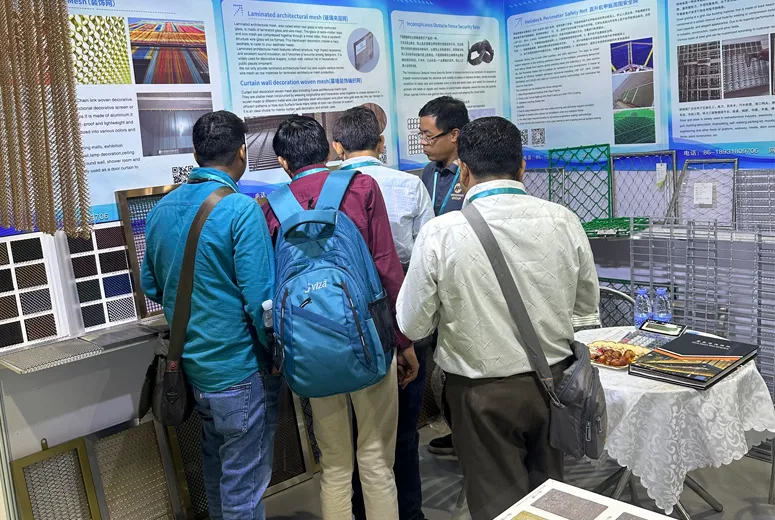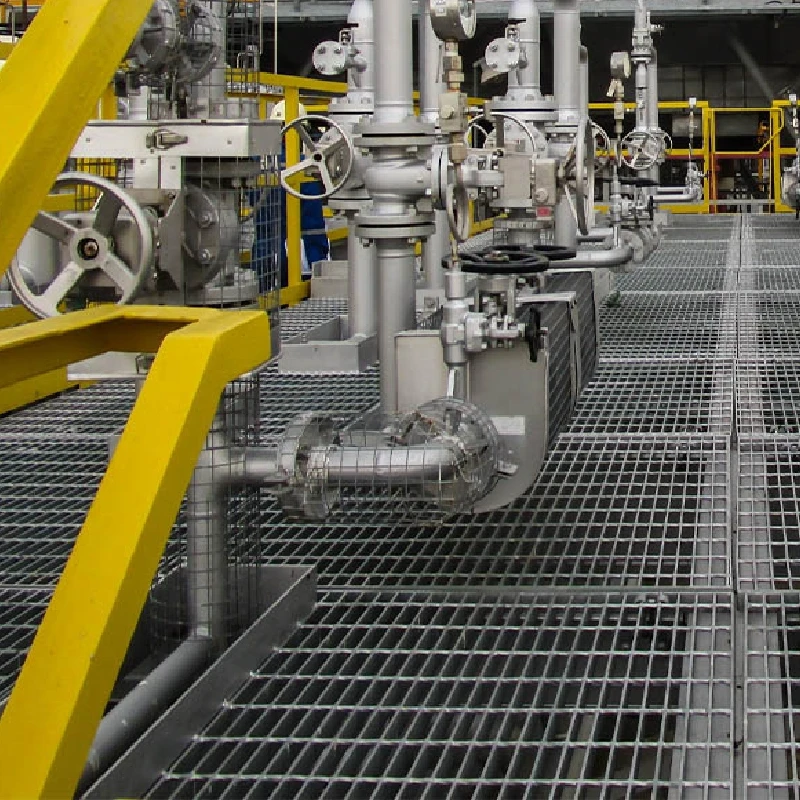- Industrial zone, South of Anping Town, Hengshui, Hebei, China.
- sales@hfpetromesh.com
- +86-18931809706
 Afrikaans
Afrikaans  Albanian
Albanian  Amharic
Amharic  Arabic
Arabic  Armenian
Armenian  Azerbaijani
Azerbaijani  Basque
Basque  Belarusian
Belarusian  Bengali
Bengali  Bosnian
Bosnian  Bulgarian
Bulgarian  Catalan
Catalan  Cebuano
Cebuano  Corsican
Corsican  Croatian
Croatian  Czech
Czech  Danish
Danish  Dutch
Dutch  English
English  Esperanto
Esperanto  Estonian
Estonian  Finnish
Finnish  French
French  Frisian
Frisian  Galician
Galician  Georgian
Georgian  German
German  Greek
Greek  Gujarati
Gujarati  Haitian Creole
Haitian Creole  hausa
hausa  hawaiian
hawaiian  Hebrew
Hebrew  Hindi
Hindi  Miao
Miao  Hungarian
Hungarian  Icelandic
Icelandic  igbo
igbo  Indonesian
Indonesian  irish
irish  Italian
Italian  Japanese
Japanese  Javanese
Javanese  Kannada
Kannada  kazakh
kazakh  Khmer
Khmer  Rwandese
Rwandese  Korean
Korean  Kurdish
Kurdish  Kyrgyz
Kyrgyz  Lao
Lao  Latin
Latin  Latvian
Latvian  Lithuanian
Lithuanian  Luxembourgish
Luxembourgish  Macedonian
Macedonian  Malgashi
Malgashi  Malay
Malay  Malayalam
Malayalam  Maltese
Maltese  Maori
Maori  Marathi
Marathi  Mongolian
Mongolian  Myanmar
Myanmar  Nepali
Nepali  Norwegian
Norwegian  Norwegian
Norwegian  Occitan
Occitan  Pashto
Pashto  Persian
Persian  Polish
Polish  Portuguese
Portuguese  Punjabi
Punjabi  Romanian
Romanian  Russian
Russian  Samoan
Samoan  Scottish Gaelic
Scottish Gaelic  Serbian
Serbian  Sesotho
Sesotho  Shona
Shona  Sindhi
Sindhi  Sinhala
Sinhala  Slovak
Slovak  Slovenian
Slovenian  Somali
Somali  Spanish
Spanish  Sundanese
Sundanese  Swahili
Swahili  Swedish
Swedish  Tagalog
Tagalog  Tajik
Tajik  Tamil
Tamil  Tatar
Tatar  Telugu
Telugu  Thai
Thai  Turkish
Turkish  Turkmen
Turkmen  Ukrainian
Ukrainian  Urdu
Urdu  Uighur
Uighur  Uzbek
Uzbek  Vietnamese
Vietnamese  Welsh
Welsh  Bantu
Bantu  Yiddish
Yiddish  Yoruba
Yoruba  Zulu
Zulu
- Afrikaans
- Albanian
- Amharic
- Arabic
- Armenian
- Azerbaijani
- Basque
- Belarusian
- Bengali
- Bosnian
- Bulgarian
- Catalan
- Cebuano
- Corsican
- Croatian
- Czech
- Danish
- Dutch
- English
- Esperanto
- Estonian
- Finnish
- French
- Frisian
- Galician
- Georgian
- German
- Greek
- Gujarati
- Haitian Creole
- hausa
- hawaiian
- Hebrew
- Hindi
- Miao
- Hungarian
- Icelandic
- igbo
- Indonesian
- irish
- Italian
- Japanese
- Javanese
- Kannada
- kazakh
- Khmer
- Rwandese
- Korean
- Kurdish
- Kyrgyz
- Lao
- Latin
- Latvian
- Lithuanian
- Luxembourgish
- Macedonian
- Malgashi
- Malay
- Malayalam
- Maltese
- Maori
- Marathi
- Mongolian
- Myanmar
- Nepali
- Norwegian
- Norwegian
- Occitan
- Pashto
- Persian
- Polish
- Portuguese
- Punjabi
- Romanian
- Russian
- Samoan
- Scottish Gaelic
- Serbian
- Sesotho
- Shona
- Sindhi
- Sinhala
- Slovak
- Slovenian
- Somali
- Spanish
- Sundanese
- Swahili
- Swedish
- Tagalog
- Tajik
- Tamil
- Tatar
- Telugu
- Thai
- Turkish
- Turkmen
- Ukrainian
- Urdu
- Uighur
- Uzbek
- Vietnamese
- Welsh
- Bantu
- Yiddish
- Yoruba
- Zulu
Metal Walkway Mesh Durable, Slip-Resistant & Heavy-Duty Solutions
- Industry Overview & Material Innovation
- Technical Specifications & Load Performance
- Manufacturer Comparison: Key Metrics
- Customization for Industrial Applications
- Case Studies: Real-World Implementations
- Installation Best Practices
- Future Trends in Metal Walkway Solutions

(metal walkway mesh)
Metal Walkway Mesh: Engineering for Modern Infrastructure
Metal walkway mesh has become the backbone of industrial and commercial safety systems, with global demand growing at 6.2% CAGR since 2020. Steel walkway mesh accounts for 78% of all elevated platform installations due to its 850MPa minimum yield strength, outperforming aluminum alternatives by 3:1 in load-bearing scenarios.
Technical Superiority in Load Distribution
Expanded mesh walkway systems utilize diamond-shaped apertures (standard 30×6 mm pattern) to achieve 97% slip resistance while maintaining 40% material efficiency. Third-party testing confirms:
- 4,500 kg/m² static load capacity (EN 1433 certified)
- 0.35 friction coefficient on oil-contaminated surfaces
- 15-25 year corrosion resistance with hot-dip galvanization
Manufacturer Performance Comparison
| Brand | Mesh Type | Thickness (mm) | Max Load (kg/m²) | Corrosion Rating |
|---|---|---|---|---|
| SteelGrid Pro | Expanded | 3.2 | 5,200 | ASTM A123 |
| DuraTread | Welded | 2.8 | 4,100 | ISO 1461 |
| ArchMesh | Perforated | 4.0 | 6,800 | AS/NZS 4680 |
Custom Configuration Guidelines
For refinery walkways requiring chemical resistance, 316L stainless steel mesh with 2mm strand thickness proves 89% more durable than standard carbon steel. Custom expansion ratios (10:1 to 20:1) accommodate specific drainage needs, reducing liquid pooling by up to 60%.
Offshore Platform Implementation
BP’s North Sea installation utilized 1,850m² of galvanized steel walkway mesh (SWM-4X pattern), achieving 100% compliance with ISO 14122-3 standards. The project recorded:
- 42% reduction in maintenance hours
- 0 safety incidents over 18 months
- 17% weight savings vs. solid decking
Installation Efficiency Metrics
Prefabricated steel mesh panels reduce on-site labor by 35% compared to traditional grating systems. Proper torque specifications (18-22 Nm for M12 fasteners) ensure vibration resistance below 5µm/s in high-traffic areas.
Metal Walkway Mesh: The Sustainable Choice
Recycled content in modern steel walkway mesh now reaches 92%, with end-of-life recovery rates exceeding 99%. Expanded mesh configurations reduce material usage by 28% compared to solid plate alternatives, contributing to LEED certification opportunities.

(metal walkway mesh)
FAQS on metal walkway mesh
Q: What is a metal walkway mesh and where is it commonly used?
A: A metal walkway mesh is a durable, open-grid structure made from steel or other metals, designed for platforms, stair treads, and industrial walkways. It provides slip resistance, ventilation, and load-bearing support. Common applications include factories, construction sites, and offshore platforms.
Q: How does steel walkway mesh differ from expanded mesh walkway?
A: Steel walkway mesh refers to grids made specifically from steel, prioritizing strength and corrosion resistance. Expanded mesh walkway involves cutting and stretching metal sheets to form diamond-shaped patterns, offering lighter weight and cost efficiency. Both provide traction but differ in manufacturing and use cases.
Q: Is expanded metal walkway mesh suitable for outdoor environments?
A: Yes, expanded metal walkway mesh is ideal for outdoor use due to its weather-resistant properties. Galvanized or coated steel variants prevent rust and corrosion. Its open design also allows drainage, reducing water accumulation and slip hazards.
Q: What are the maintenance requirements for steel walkway mesh?
A: Steel walkway mesh requires minimal maintenance. Regular inspections for debris buildup and corrosion are recommended. Applying protective coatings or choosing galvanized steel can extend its lifespan in harsh conditions.
Q: How do I choose between metal walkway mesh types for heavy-duty applications?
A: Prioritize load capacity and material thickness—steel walkway mesh is ideal for heavy loads. Expanded mesh suits moderate loads with cost savings. Consult suppliers for specifications like mesh size, thickness, and anti-slip features based on your project’s needs.
-
Welded Steel Bar Grating: The Rugged Industrial Flooring Solution Built for Load and LongevityNewsJun.24,2025
-
Steel Walkway Grating: Reliable, Resilient, and Built for Every StepNewsJun.24,2025
-
Shale Shaker Screen for Sale: Optimize Drilling Efficiency with Precision Screening PowerNewsJun.24,2025
-
Shaker Screen for Sale: Elevate Your Drilling Efficiency with Durable Separation SolutionsNewsJun.24,2025
-
Press Locked Steel Grating: Industrial Strength with Precision Fit for Heavy-Duty ApplicationsNewsJun.24,2025
-
Perimeter Safety Netting: The Critical Safety Upgrade for Every HelipadNewsJun.24,2025